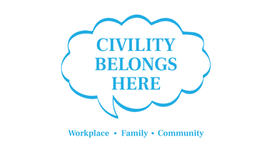- Jul 17, 2015
- 3 min read

John Kotter, a Harvard Business School Professor and author of A Sense of Urgency, suggests we are much too complacent…and we don’t even know it.
The dictionary describes ‘urgency’ as a condition of pressing importance. When individuals operate with a sense of urgency, they act now…not later.
The urgency I’m talking about does not create an unhealthy feeling of stress, but it shows a healthy commitment and determination to do whatever it takes to exceed the expectations of your clients. The people you serve want to work with a trusted advisor they can always trust. When you operate with this kind of urgency, your clients feel important and they are more likely to make you their resource of first choice. When your organization has developed the hustling habit, you will also increase your chances of getting referrals.
The challenge you have to address is the fact that most good clients rarely complain when deadlines are missed, phone calls are returned late or when you fail to meet their needs. They demonstrate their disappointment by taking their business to another firm. By the time you find out they were upset, it’s too late to do anything about it.
One way to improve your ability to act with urgency is to start making more requests and promises with your co-workers and clients. I know you are thinking you already have too much on your plate to take on another commitment, but using requests and promises actually frees up more of your time.
A request is a simple closed-ended question that asks, “Will you do X by Y?” For example, “Will you review this contract by Friday at 5:00 PM?” Asking someone if they can get you something as soon as possible is not a request. You don’t even want to say, “Review it by the end of the day” because the time people end their day varies.
A promise is a simple ‘yes’ or ‘no’ response. Saying ‘I’ll try’ to a request is just an excuse to not do something right away. You can say ‘I’ll try’ and your intentions may be good, but you know you will not act with a sense of urgency. Letting someone think you might do it may seem better than saying ‘no’, but it is actually worse. The person making the request thinks your vague response was a commitment; and when you fail to meet the deadline, the client or co-worker becomes disappointed.
If you can’t say ‘yes’, you can suggest an alternative. “I can’t do it by 5:00 on Friday, but I can get it to you by 8:00 AM Monday morning.”
You will not always be able to keep your promises. Unexpected personal and professional problems come up and they have to be addressed. The moment you feel your word to a client or co-worker is in jeopardy, you need to contact the person and let them know you may not be able to keep your original commitment and offer an alternative. Most people will understand if you keep them posted on your progress.
If you want to see a dramatic increase in your daily productivity, team effectiveness and client satisfaction, start using requests and promises. If someone answers your request with an ‘I’ll try’ statement, try responding this way: “I appreciate your willingness to try, but I need to know when you can promise to get the information to me.”
The first time you demand a specific answer to your request, it might be uncomfortable for you and the person you’re talking with, but soon it will become part of your organizational culture and then your co-workers and clients will thank you. I promise!
Let’s Get Better. Together!
Bill Durkin
































Comments